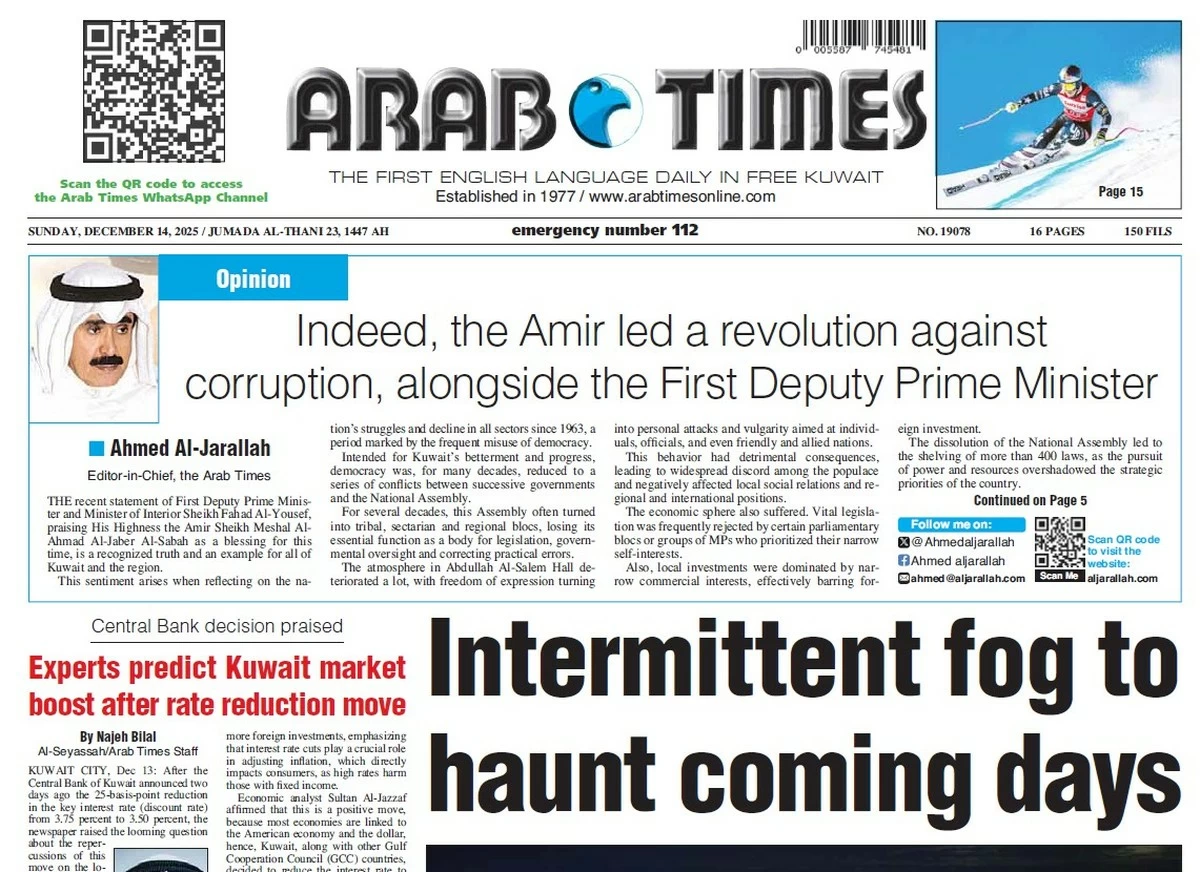KUWAIT CITY, Jan 20: In a decisive step toward economic and financial reform, Kuwait has unveiled a series of decrees and decisions aimed at reducing the state budget deficit, diversifying income sources and curbing public spending, reports Al-Seyassah daily. These reforms, published in the Official gazette, signal the government’s commitment to achieving sustainable development and fiscal responsibility. Decree-Law No (1) of 2025 cancels the previous Decree-Law No. (79) of 1995, which capped fees for public facilities and services at their 1994 levels. The new law introduces a system where fees will be determined by relevant authorities based on the cost of service delivery and usage, ensuring social justice and protecting the public’s minimum standard of living.
The authorities will establish these fees with approval from the Council of Ministers, enhancing flexibility and sustainability in managing public resources. This decree also emphasizes the importance of regulating service demand to align with good governance principles. Informed sources suggest the reform may lead to adjusted prices for petroleum derivatives, municipal services, health services and official document fees such as passports and IDs. Another significant reform, Decree-Law No. 3 of 2025, dissolves the Public Authority for Printing and Publishing the Holy Quran and transfers its responsibilities to the Ministry of Islamic Affairs. Employees will retain their positions, grades and benefits, ensuring a smooth transition. Additionally, Decree No. 7 of 2025 abolishes the Social Development Office, transferring its functions to the Supreme Council for Family Affairs. These moves are part of a broader government strategy to reduce administrative redundancies, rationalize public spending and address overlapping competencies across agencies. In line with these reforms, the Minister of Health, Dr. Ahmed Al-Awadhi, has approved a fee schedule for services provided by the Public Authority for Food and Nutrition. Prices range from 250 fils to 250 dinars and will be implemented starting May 1, 2025.
The Decree No. (8) of 2025 amends the name of the Ministry of Endowments and Islamic Affairs to the “Ministry of Islamic Affairs.” This change reflects the ministry’s request to grant the General Secretariat of Endowments operational independence. Legal expert Dr. Ibrahim Al- Hamoud emphasized that the new fee structure will adhere to market principles, balancing supply and demand. Fees will be closely monitored to prevent any undue financial burden on citizens, with potential adjustments covering services such as housing loans, marriage licenses and electricity connections. These reforms align with Kuwait’s broader economic strategy to restructure government operations, reduce administrative infl ation and enhance fiscal efficiency. By re-pricing services and consolidating agencies with overlapping mandates, the government aims to foster economic sustainability and strengthen public trust in its management of resources.



